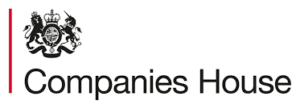Whitehall Scrambles to Overhaul Data Protection After £1bn MoD Afghan Breach

MoD’s catastrophic leak of Afghan informants’ details exposes systemic failures across government
The UK government is racing to implement sweeping reforms to data protection standards across Whitehall following the Ministry of Defence’s catastrophic breach in February 2022, which exposed the identities of nearly 19,000 Afghan citizens who had worked with British forces and is expected to cost the public purse over £1bn.
The incident, kept secret from parliament and the public for more than 600 days under an unprecedented superinjunction, has forced ministers to confront systemic weaknesses in how departments handle sensitive personal information. The breach occurred when an MoD official mistakenly emailed a spreadsheet containing names, contact details and family information of ARAP applicants outside authorised government systems, but went undetected for 18 months until excerpts appeared on Facebook in August 2023.
The scale of the government’s response reflects the severity of what Information Commissioner John Edwards described as a “deeply regrettable incident that placed thousands of vulnerable people at risk”. Research involving 231 formally notified Afghans found that 49 reported family members or colleagues had been killed, with over 40 per cent receiving direct death threats following the leak.
In October 2025, ministers disclosed a comprehensive package of measures designed to prevent similar failures. The centrepiece is the appointment of a Government Chief Data Officer with direct accountability for managing cross-government data protection risks and compliance, a role that officials acknowledge should have existed years ago. A dedicated team will report directly to the GCDO to set consistent standards, respond swiftly to risks and advance privacy technology across government.
The reforms mark a significant departure from the traditional Whitehall model of departmental autonomy. New information management training will be rolled out for all civil servants, a recognition that the MoD breach stemmed not just from technical failures but from inadequate training and a culture that failed to prioritise data security.
MoD permanent secretary David Williams, who stepped down in October 2025, told the Public Accounts Committee in September he felt “deeply uncomfortable” about the veil of secrecy that kept even the National Audit Office in the dark about the breach. The NAO’s head, Gareth Davies, learned of the incident only in July 2025, nearly three years after it occurred, severely hampering parliamentary oversight of government spending on the ensuing Afghan resettlement programmes.
The timing of the reforms coincides with the phased implementation of the Data (Use and Access) Act 2025, which received Royal Assent on 19 June. The legislation introduces substantial changes to UK GDPR and the Data Protection Act 2018, reflecting the government’s attempt to balance post-Brexit aspirations for regulatory flexibility with the imperative to maintain robust safeguards following the Afghan debacle.
The DUAA amends but does not replace UK GDPR, introducing changes designed to promote innovation and economic growth while maintaining protections for individuals’ data rights. Key provisions include a new “recognised legitimate interest” lawful basis for processing personal data for crime prevention and public security purposes, and simplified rules for international data transfers that require protections to be “not materially lower” rather than “essentially equivalent” to UK standards.
However, the Afghan breach has forced a marked shift in emphasis. While ministers initially framed the DUAA as business-friendly deregulation, the MoD disaster has compelled a renewed focus on enforcement and compliance. Data protection experts note the inherent tension in government policy. “They’re trying to sell this as cutting red tape for innovation while simultaneously admitting they can’t keep Afghan interpreters’ names secure,” said one privacy lawyer who advises Whitehall departments. “The credibility gap is enormous.”
The government’s credibility problems are compounded by the fact that this was not the MoD’s first failure involving Afghan nationals. In September 2021, the ICO fined the MoD £350,000 for disclosing personal information of 265 Afghan nationals in an email that shared recipients’ addresses and profile pictures. That incident prompted promises of improved controls, promises that proved hollow when the far larger 2022 breach occurred just months later.
The government is also establishing a cross-government Technology Risk Group to drive accountability for technology risk, unifying all major technology risks under one clear governance structure. The move reflects recognition that departmental silos contributed to the MoD’s failures going undetected.
Parliamentary scrutiny has intensified following the lifting of the superinjunction in July 2025. The Defence Committee launched a broad inquiry in October, with Defence Committee chair Tan Dhesi describing the revelation that hundreds of millions of pounds had been secretly committed to bringing to safety thousands of Afghans whose lives were jeopardised by the colossal breach.
Defence Minister Luke Pollard has promised to provide hundreds of pages of documents from the superinjunction proceedings to Parliament, including court bundles and redacted Cabinet papers. The disclosure of Cabinet documents from the previous Conservative administration represents what Pollard described as an “exceptional” step justified by the need for transparency after being “kept in the dark for too long.”
The ICO is developing a memorandum of understanding with government to explain how the regulator will provide assurance on delivery and impact of the reform work. Edwards said the government must carry through on commitments to ensure the public can trust and be confident when sharing personal information with government.
Whether these reforms prove adequate remains uncertain. The emphasis on advancing privacy-enhancing technologies across departments suggests recognition that technical solutions, from encryption to automated redaction tools, must complement cultural change. Critics argue that without genuine ministerial accountability, no minister has resigned or been sanctioned over the breach, the risk of institutional complacency remains high. The government insists its approach is comprehensive, but privately officials acknowledge that rebuilding public trust will require sustained performance rather than reorganisation alone.
As one senior civil servant put it: “We’ve created new governance structures before. The question is whether we’ve finally learned that data protection isn’t an IT problem, it’s about culture, training, accountability and consequences when things go wrong. Privacy technology can help, but only if people actually use it properly.”





